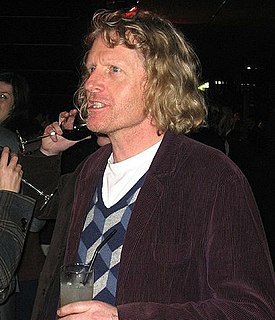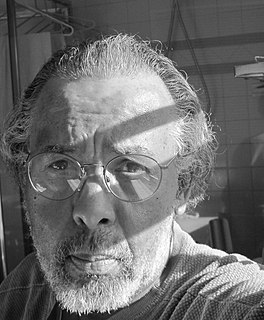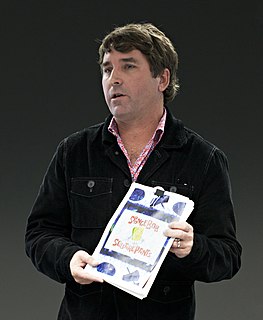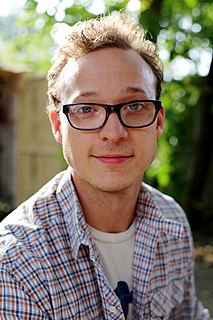A Quote by Sally Mann
I have nothing but respect for people who travel the world to make art and put exotic Indians in front of linen backdrops, but it's always been my philosophy to try to make art out of the everyday and ordinary.
Related Quotes
When things get tough, this is what you should do: Make good art. I'm serious. Husband runs off with a politician -- make good art. Leg crushed and then eaten by a mutated boa constrictor -- make good art. IRS on your trail -- make good art. Cat exploded -- make good art. Someone on the Internet thinks what you're doing is stupid or evil or it's all been done before -- make good art.
What people that are professionals in the art world - both in literature and the other arts - always try to do is to recognize the feasibility of making the transition from the particular to the general - to make the transition from the portrait of one postman - to take Van Gogh, for example, to something that is every postman. That synecdotal transition that most selfies don't make. But we who live in this world, and not simply in our private realities, understand that that's the transition our art has to make.
I like the boundaryless potential you get when you make work for a context that is open to interpretation. Thinking about an art context is too claustrophobic, though. I always hope that at least half my audience is not directly related to the art world. I use art as a balancing act. It's a good way of avoiding everyday chores and social obligations.
I think that a lot of artists have succeeded in making what I might call "curator's art." Everybody's being accepted, and I always want to say, "Really? That's what you've come for? To make art that looks a lot like somebody else's art?" If I am thinking of somebody else's art in front of your art, that's a problem.
Take a bunch of little kids to the beach and they all make art. Adults are too stupid to call it art, but it is art. They'll use their imaginations, make drama, make up characters, make pictures in the sand, they'll make up songs that no one's ever heard before. All kids, I think, are creative, but they get it pounded out of them in school.
All I try to do is portray Indians as we are, in creative ways. With imagination and poetry. I think a lot of Native American literature is stuck in one idea: sort of spiritual, environmentalist Indians. And I want to portray everyday lives. I think by doing that, by portraying the ordinary lives of Indians, perhaps people learn something new.
My definition of art has always been the same. It is about freedom of expression, a new way of communication. It is never about exhibiting in museums or about hanging it on the wall. Art should live in the heart of the people. Ordinary people should have the same ability to understand art as anybody else. I don’t think art is elite or mysterious. I don’t think anybody can separate art from politics. The intention to separate art from politics is itself a very political intention.



































